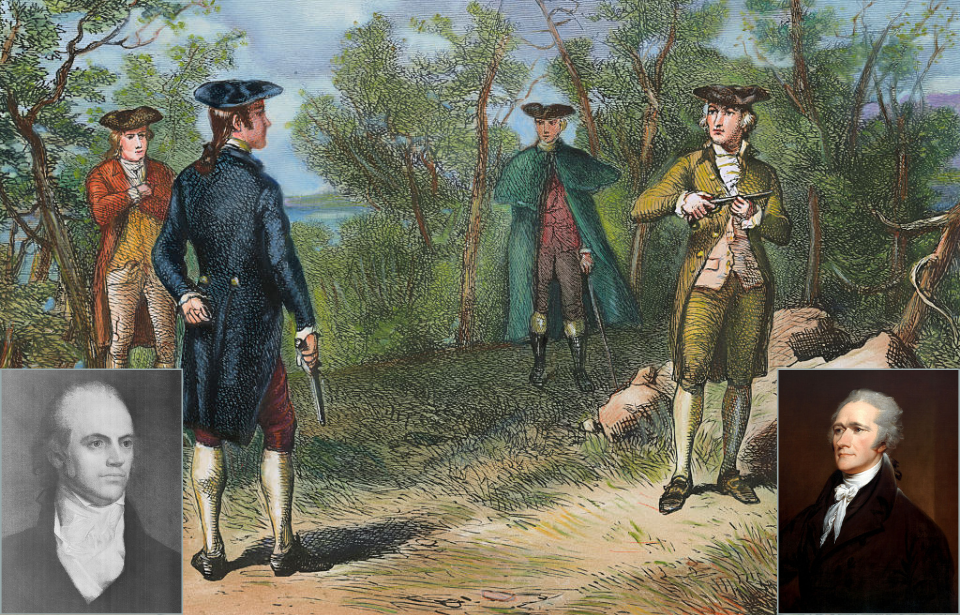The name “Alexander Hamilton” is globally recognized today, largely due to Lin-Manuel Miranda’s Broadway hit Hamilton. The musical not only revived interest in the Founding Father but also brought attention to his rival, Aaron Burr—the man who killed him in a fateful duel. However, what many people don’t know is that Hamilton’s son, Alexander Hamilton Jr., quietly orchestrated a brilliant act of revenge. Rather than resorting to violence, he used intellect and strategy to undermine Burr’s political future, striking back in a way that was as calculated as it was poetic.
Early life
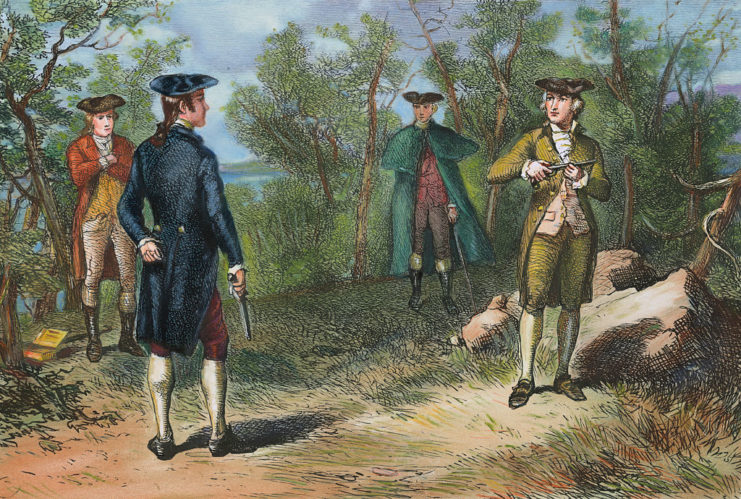
Alexander Hamilton Jr. was born on May 16, 1786, in New York City. He was the third child and second son of Founding Father Alexander Hamilton and his wife, Elizabeth ‘Eliza’ Schuyler. He had an older brother named Philip Hamilton and an older sister named Angelica Hamilton. Hamilton Jr. had five additional younger siblings.
By the age of eight, Alexander Hamilton Jr. began attending a boarding school in Trenton, New Jersey. Alexander and his older brother Philip studied under Episcopal clergyman William Frazer.
When Alexander Hamilton Jr. was only 15-years-old, his older brother Philip was tragically shot and killed by lawyer George Eacker in a duel. Alexander Hamilton Sr. never recovered from his eldest son’s untimely death. Three years after Philip’s death, on July 11, 1804, Alexander Hamilton was killed by political rival Aaron Burr in the famous Burr-Hamilton duel. Hamilton was shot in the lower abdomen and succumbed to his injuries one day later.
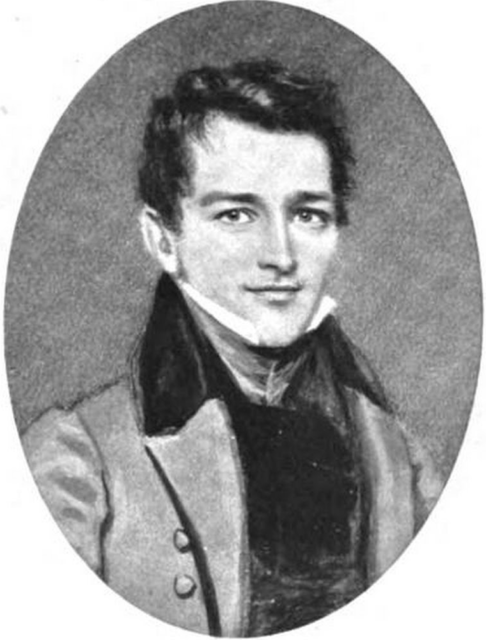
Alexander Hamilton Jr. was studying law at Columbia College in New York when news of his father’s duel and injuries reached him. Upon learning of the incident, Hamilton Jr. hurried home, where he saw his father alive for the last time. Alexander Hamilton was fatally wounded just weeks before his son’s graduation, resulting in Hamilton Jr. not graduating on time from Columbia.
The impact of Alexander Hamilton’s untimely death extended beyond delaying his son’s graduation. Following the death of the first Secretary of the Treasury, Elizabeth Hamilton faced financial hardship, which forced her to sell their family home, The Grange, to pay off lingering debts. Additionally, Alexander Hamilton Jr.’s older sister, Angelica, suffered a mental breakdown after their father’s death, leaving her in a lifelong state of insanity. Angelica had been deeply close to her father and her brother Philip, and the loss of both in just a few years profoundly affected her.
An illustrious law and military career
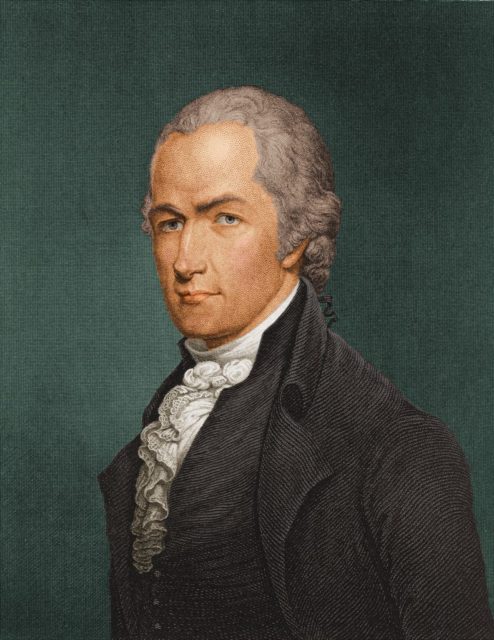
Soon after he graduated, Alexander Hamilton Jr. was offered an apprentice spot in Boston with Stephen Higginson’s law firm. However, Eliza Hamilton couldn’t fathom being separated from her children so soon after her husband’s death. Alexander Hamilton biographer, Ron Chernow, states in Alexander Hamilton that Eliza said to Stephen Higginson: “Unnerved by affliction and broken down by distress, what can be my wishes but to have the children of the best, the tenderest husband always with me?”
Hamilton Jr. worked in law for a few years after graduation but decided to sail for Spain in 1812. He joined the Duke of Wellington‘s army, then stationed in Portugal, where he learned strategy and received military training.
Hamilton trained with the British Army before returning to America to fight in the War of 1812. In August 1813, he received a commission as Captain of the 41st Regiment of Infantry in the United States Army. However, the 41st Regiment does not appear to have seen any active service during the War of 1812. Alexander Hamilton Jr. also served with his father’s old friend, General Morgan Lewis, in 1814.

After serving in the American military until June 1815, Alexander Hamilton Jr. returned to civilian life and resumed his law practice. In 1817, he married Eliza P. Knox, daughter of prominent New York merchant William Knox. Just a year later, Hamilton began a political career of his own by securing a seat in the New York State legislature.
His public service continued to expand when President James Monroe appointed him U.S. Attorney for Eastern Florida in May 1822. In this role, Hamilton Jr. was instrumental in helping shape the legal and political framework of the territory, paving the way for Florida’s eventual admission as a U.S. state in 1845.
Years later, Hamilton returned to New York City and made a name for himself in real estate. His sharp business sense quickly earned him recognition on Wall Street. With his success, he made a deeply personal gesture—using his own wealth to buy back his childhood home for his mother, Eliza Hamilton, preserving a piece of family history.
Alexander Hamilton Jr. took everything from Aaron Burr
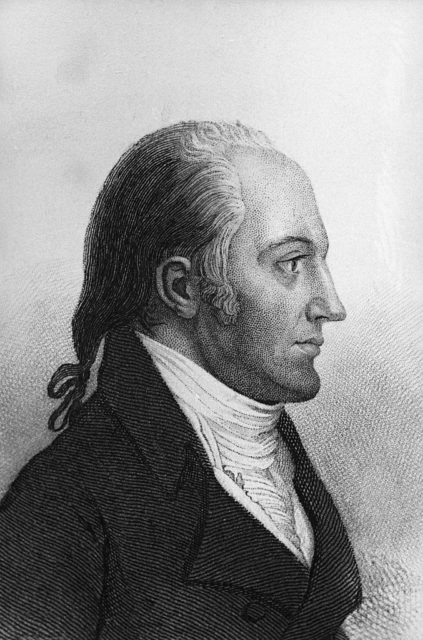
While Alexander Hamilton’s son was beginning and thriving in his career, his adversary Aaron Burr was teetering on the edge of total ruin. Burr’s reputation took a devastating hit after he killed Hamilton in 1804. Public outrage over Hamilton’s death forced Burr to flee to New Jersey, though he later returned to Washington, D.C. In 1807, Aaron Burr faced trial on charges of conspiracy and high misdemeanors. Despite being acquitted, these charges permanently derailed his political career.
By 1812, Aaron Burr was destitute. He tried to revive his legal career in New York City but achieved only limited success. By 1830, Burr had become financially reliant on the generosity of his friends. In 1833, he married Eliza Bowen Jumel, a socialite and wealthy widow.
Eliza Bowen Jumel’s first husband, Stephen Jumel, was a prosperous French wine merchant. The couple resided in what is now known as the Morris-Jumel Mansion, a home that once served as a headquarters for George Washington and his Continental officers. When Stephen Jumel passed away in 1832, Eliza became the wealthiest woman in America.
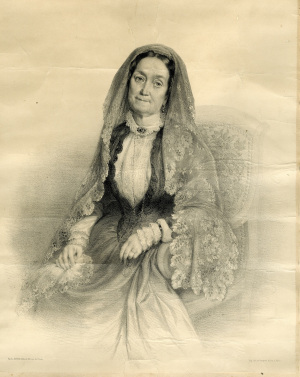
77-year-old Aaron Burr moved into the Morris-Jumel Mansion in Washington Heights with Eliza Jumel after their wedding. No one knows whether or not Eliza realized Aaron Burr was penniless. Historians believe her decision to marry Burr was influenced by the prestige of having a former American Vice President as her husband. However, after only four months of marriage, Eliza Bowen Jumel and Aaron Burr separated.
Jumel realized she needed a solid lawyer. Who better to represent her than the son of Aaron Burr’s enemy, Alexander Hamilton Jr.? By the time of the divorce trial, Alexander Hamilton Jr. had lived an extremely successful life. There was no logical reason for him to take Jumel’s case, which was seen as leagues below his status. However, he took it anyways- perhaps to avenge his father.
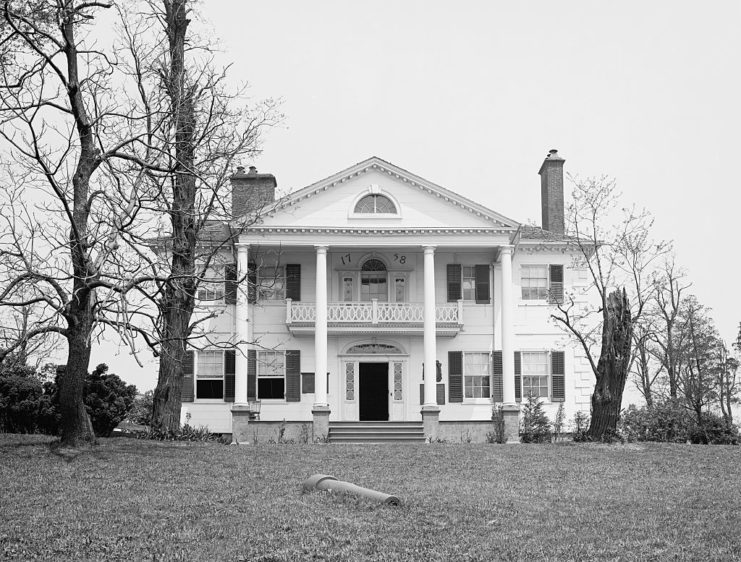
The divorce trial was dragged out over a three-year time span. During this trial, Alexander Hamilton’s second son brought to light Burr’s every misdeed. By the end of the trial, Aaron Burr had been stripped of everything. Alexander Hamilton Jr. and Eliza Jumel took what remained of Aaron Burr’s money, health, and legacy.
On September 14, 1836 – the same day the divorce was finalized- Aaron Burr died in a boardinghouse that was later known as the St. James Hotel. He died knowing his enemy’s son took everything from him in his final days. Alexander Hamilton Jr. died on August 2, 1875, at age 89, in New York City.
